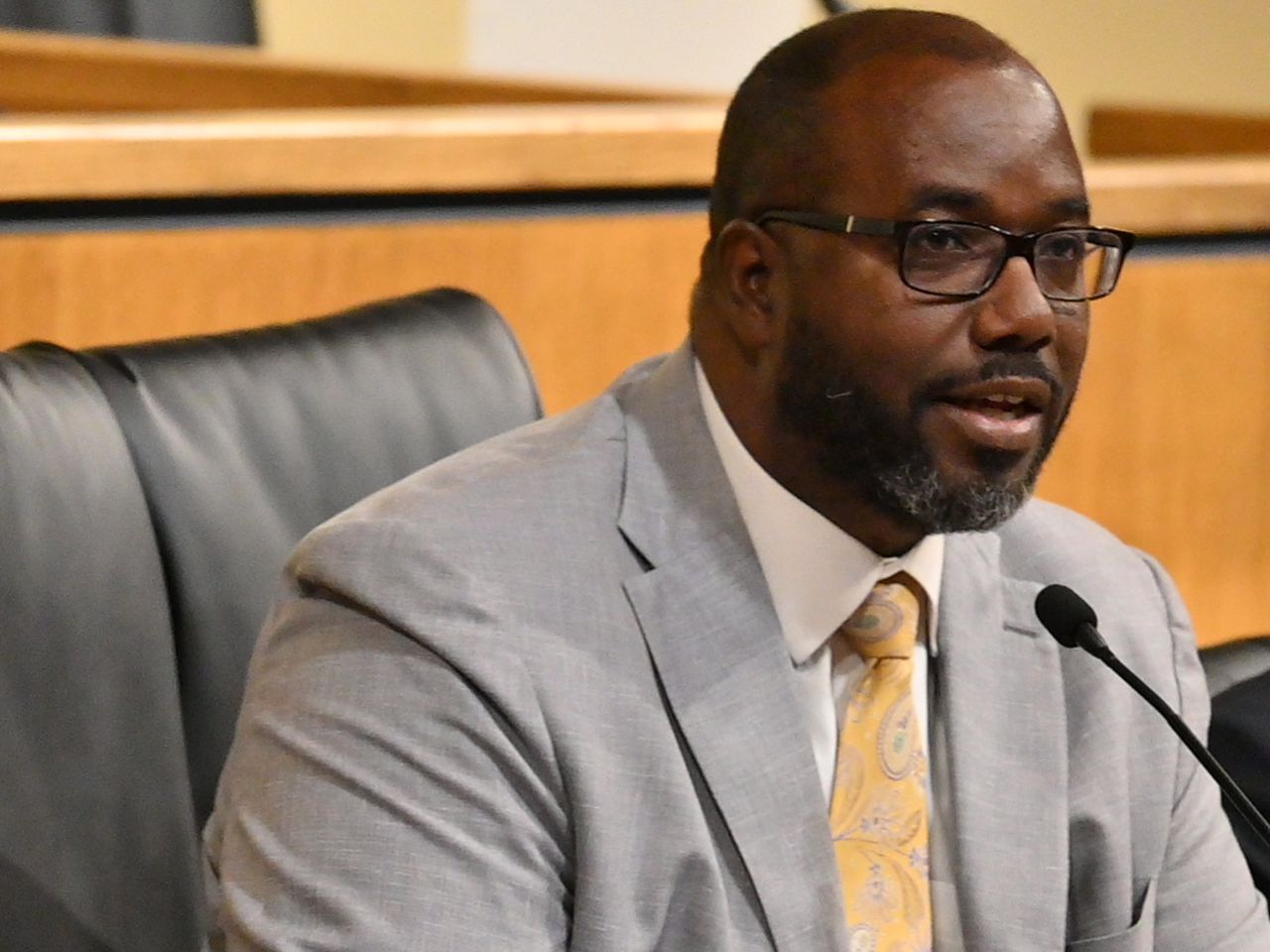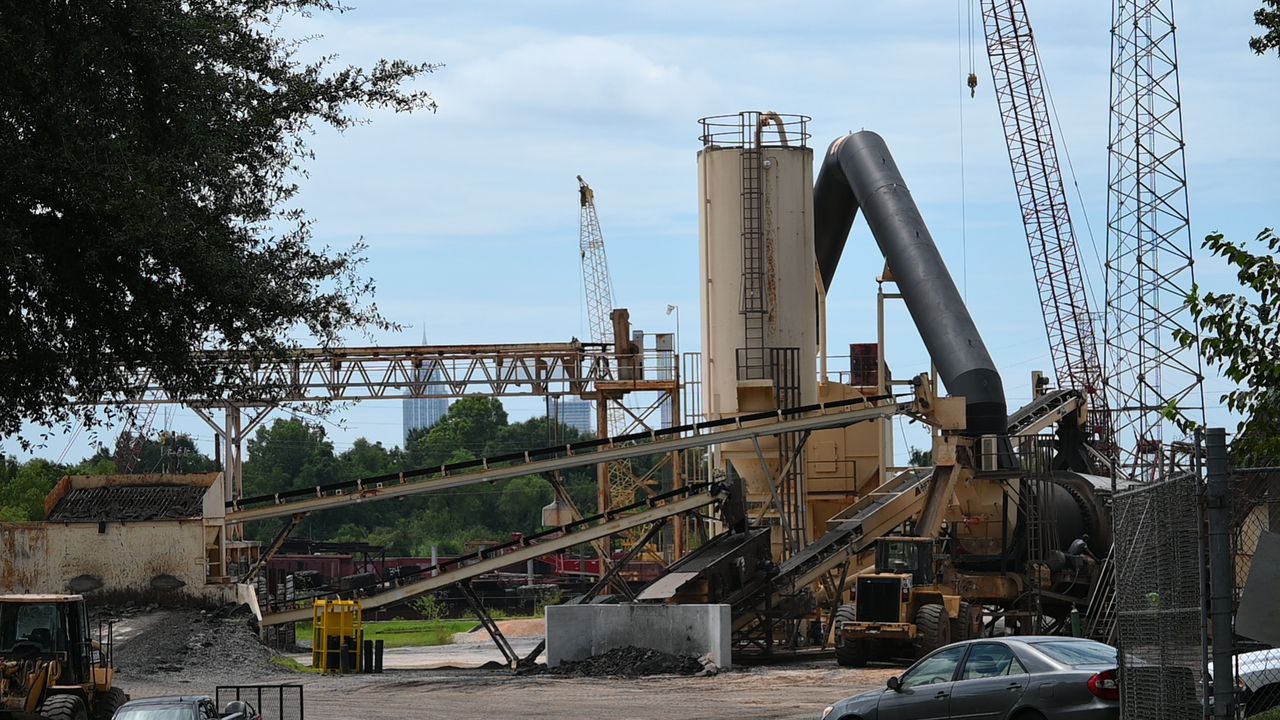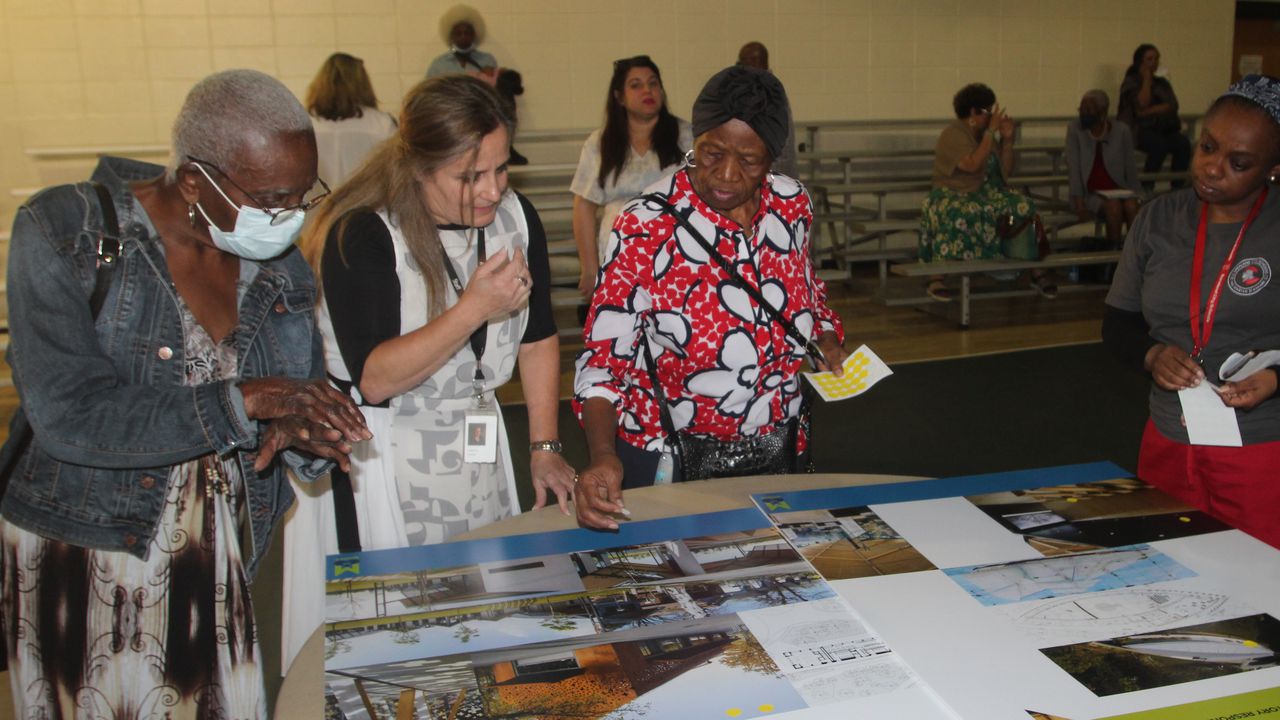As Africatown opens to tourism, concerns surface over asphalt plant
Walter Moorer didn’t attend the weekend’s events for the grand opening of the Africatown Heritage House, or those memorializing the 163rd anniversary of the arrival of the slave ship Clotilda.
He said he feels far removed from the community’s celebration.
“I’m still captured,” said Moorer, 65, referring to the original founders of Africatown who arrived in the slave ship Clotilda in 1860, and whose harrowing story is memorialized in the $1.3 million museum officially opening to the public on Tuesday.
“I cannot celebrate with them,” Moorer said. “It’s the odor. It’s the noise.”
Read more:
His complaints are linked, he said, to the Hosea O. Weaver & Sons asphalt plant that was fined $24,000 by the Alabama Department of Environmental Management in May for failing an air pollution test performed on it on December 15, 2022.
Two environmental watchdog groups in Mobile and Birmingham, in a June 9 letter, called on ADEM to “curtail operations” at the asphalt plant until a joint state and federal analysis of the plant’s air emissions could be completed.
An ADEM official, in a June 27 response, determined that further investigation was not warranted.
“We are again operating in full compliance with the air permit emissions requirements for our facility,” said Michael Weaver, president of H.O. Weaver & Sons Inc., owners of the asphalt plant and a family-owned business specializing in heavy highway and industrial construction since 1952.
“We take compliance at all of our facilities and jobsites seriously and always strive to be good stewards of the environment and the community,” Weaver said.
Welcome Center conflict
Catarina Echols of Mott MacDonald, second from left, describes conceptual design elements that might be part of a new Africatown Welcome Center during a public meeting on April 6, 2023.Lawrence Specker | [email protected]
But the fine and decades of complaints about the plant are unlikely to go away. And the issues with the asphalt plant, environmental groups say, further underscores a generational struggle within Africatown – a mostly Black neighborhood north of downtown Mobile – with the heavy industry that surrounds it.
The proximity of the Africatown community founded by the Clotilda survivors and environmental injustices were highlighted in the Netflix documentary, “Descendant,” release last year.
Tourism and the heavy industry are now likely to intersect within Africatown, and at least one city official believes a larger conversation is warranted over how the asphalt plant will operate within a long softball toss away from the front entrance to a nearly $6 million Welcome Center.

Mobile City Councilman William Carroll (John Sharp/[email protected]).
“It’s something to think about,” said Councilman William Carroll, who represents the Africatown community. “With the Welcome Center coming, you don’t want to have people coming into and out of a super nice facility having to deal with asphalt spills and dust flying everywhere. We have to come up with a plan where everyone is a good neighbor.”
Ramsey Sprague, president of the Mobile Environmental Justice Action Coalition (MEJAC), said the asphalt plant and surrounding heavy industry could impede the pedestrian traffic that could be coming to the Welcome Center. The facility, under development by the City of Mobile, is the next major tourism venue for Africatown, and is expected to be built before the end of 2024.
Sprague said he believes trucks headed to the asphalt plant should be re-routed and not interfere with the tourism activity.
“I think it’s a no-brainer that visitors, when they come to Africatown, will be shocked at the stench from the asphalt facility, and something needs to be done about it,” Sprague said.
ADEM: Asphalt plant OK

The Hosea O. Weaver & Sons asphalt plant in Mobile, Ala., within the Africatown neighborhood, as pictured on Friday, July 7, 2023. (John Sharp/[email protected]).
For now, the asphalt plant has the backing of ADEM’s Air Division Chief Ronald Gore.
Gore, in a response to the June 9 letter from MEJAC and Birmingham-based GASP, said there were no reasons to do anything beyond assessing the initial fine and downplayed concerns about asphalt plants producing hazardous emissions.
He cited a 2007 report from the Agency for Toxic Substances and Disease Control, a federal agency that released a study of air quality surrounding two asphalt plants in North Carolina. The plants, Gore noted, make the same product using the same methods as the Weaver facility in Africatown.
The study, Gore noted in his letter, concluded that exposure to asphalt emissions “did not find a public health hazard.”
In addition, he said, the U.S. EPA made a formal decision in 2002 that levels of hazardous air pollutants from asphalt plants “do not warrant development of a rule specific to the facilities.”
Weaver, the president of H.O. Weaver & Sons, pointed Gore’s letter as validation that an asphalt plant does not pose a public health hazard.
He also said his company participates with members of the Africatown business community, including the Africatown Community Development Corp., and the Africatown Business & Community Panel. He said he made those groups aware of the incident and ADEM’s fine “in an open and transparent manner to their satisfaction.”
Sprague said he would like to see ADEM conduct a public hearing on the asphalt plant in Africatown, where multiple interest groups and residents unaffiliated with a particular organization, could attend. He said residents feel as if they are in a “hopeless situation” and have relied on MEJAC and others to partner with them in lodging complaints.
“You have residents living with this facility longer than two decades, and they’ve tried every possible means to seek remedy and have been denied at every single turn and too few people have come to their aid,” he said.
Moorer is one of them.
“I would like for them to move, I really do,” he said about the asphalt plant. “Or just buy us out and then you can bang and boom and kick up dust all night if you need to.”
